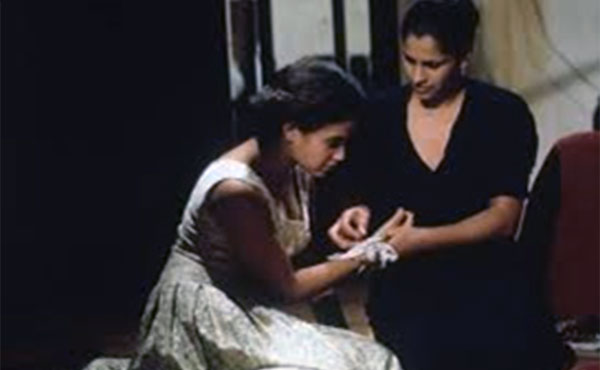
Moufida Tlatli
In many ways «The Silences of the Palace» is an exotic foreign film. Set mostly in Tunisia in the 1950’s, during the reign of its last monarchs, it tells of life for a kitchen servant and her daughter. Yet in other ways this is a universal coming-of-age story with a feminist twist, a tale that translates effortlessly.
The heroine, Alia, grows up in the palace at a time when the female servants are expected to be sexually available to the men they serve. Years later, as a woman, she is still searching for independence from her lover.
The film begins with Alia at 25, singing at a wedding, then fleeing in disgust with her life. At home, the reason becomes clear. Her lover is insisting she have an abortion, not her first. He also tells her that Sidi Ali, the prince for whom her mother worked, has died. Alia returns to the palace she left 10 years before, revisiting «the past I thought I’d buried with my mother.»
What follows is a long flashback to Alia’s girlhood and adolescence. Alia’s mother, Khedjia, is the favorite of Sidi Ali, with whom she has a tender relationship despite a position that is close to sexual slavery. (The same is not true of her feelings for Sidi Ali’s brother, who forces himself on her to her obvious revulsion.)
In eloquent scenes that recreate the details of their lives, Alia is seen playing the lute with her girlhood friend Sarra. At a party she sneaks a look at her mother dancing for elegantly dressed men and women.
The colorful tiled palace walls, the gardens, the simple room where Alia and her mother live are presented in rich visual detail. Yet as Alia begins to awaken to the social and sexual truths of her world, the film does not often enough capture the sense of mystery she must have been experiencing. When Alia looks through a window and glimpses her mother, wearing a slip, in bed with Sidi Ali, she races from the window and runs around in circles on the lawn in a motion of confusion and sexual energy she barely knows she has. More of those moments would have made «The Silences of the Palace» truly exceptional. As it is, Moufida Tlati has directed a fascinating and accomplished first feature.
Par Caryn James
(Extraits)
The New York Times
